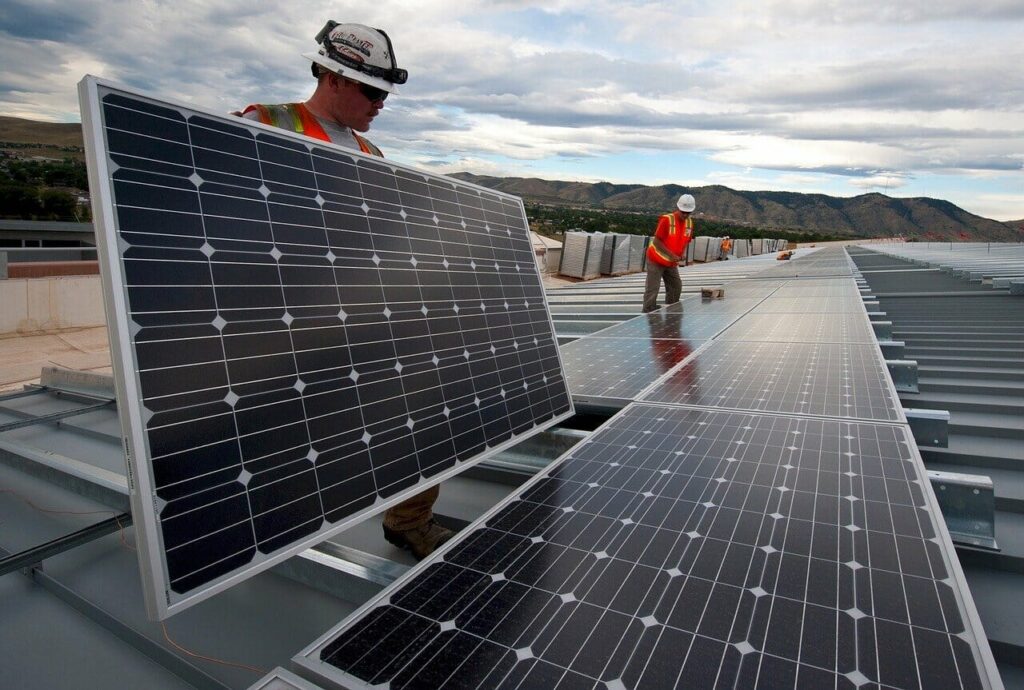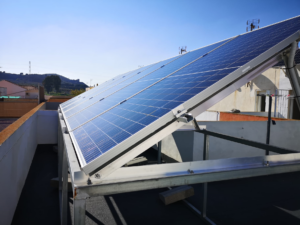Solution to excess power: Company with photovoltaic roof and lithium batteries
Industrial hybrid self-consumption to solve the penalty for excess power. with lithium batteries.
This time we bring you a work done some time ago, it is an installation of solar panels for self-consumption in Cartagena, executed on the roof of an industrial building, consists of 128 solar panels Jinko of 330Wp and has 2 inverters. Fronius SYMO 20.0-3 of 20kW each plus a Fronius Symo GEN24 Plus 10.0 Three-Phase Hybrid inverter with two benches HV lithium battery BYD Battery-Box Premium HVM 19.3kWh to store the solar surplus, with both battery banks adding up to a total of almost 40kW/h of total capacity.
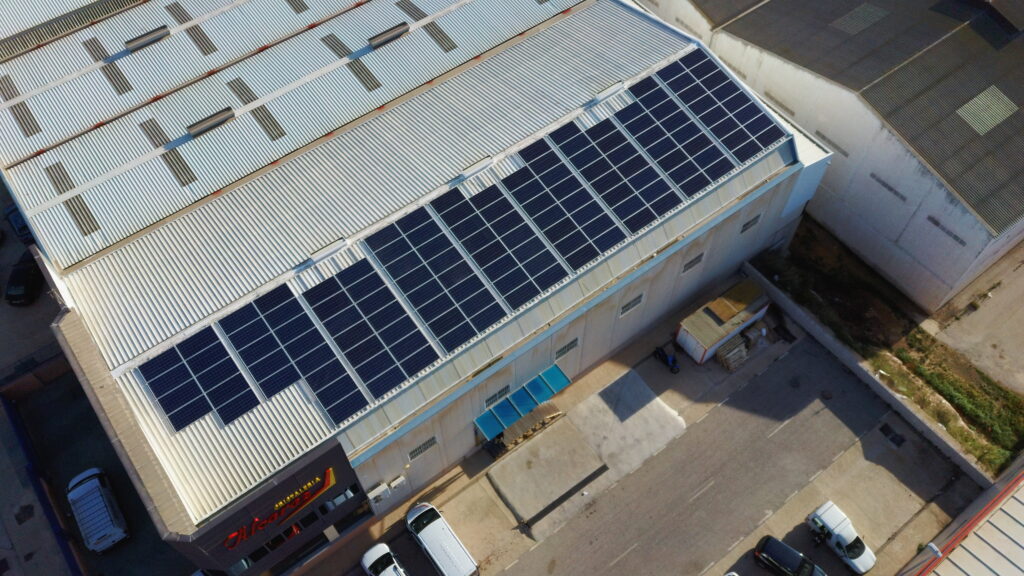
Solution to excess electrical power:
The installation of batteries in photovoltaic installations or solar panels in companies is one of the best solutions to these penalties for excess power in the electricity contracts of companies. The installation of solar panels on the roofs of warehouses solves the problem of the high energy demand of these companies and in turn reduces their electricity bills, making them more competitive and helping to reduce their CO2 emissions into the atmosphere by being more respectful of their surroundings and the environment.
Going back to the problem that this type of installation solves, we usually find companies that start their activity at a very early hour, around 6:00 or 7:00 in the morning. At that time, logically, we cannot ask the sun to come out to produce energy, so we have to use the electricity grid to power all the machinery that the company uses on a daily basis.
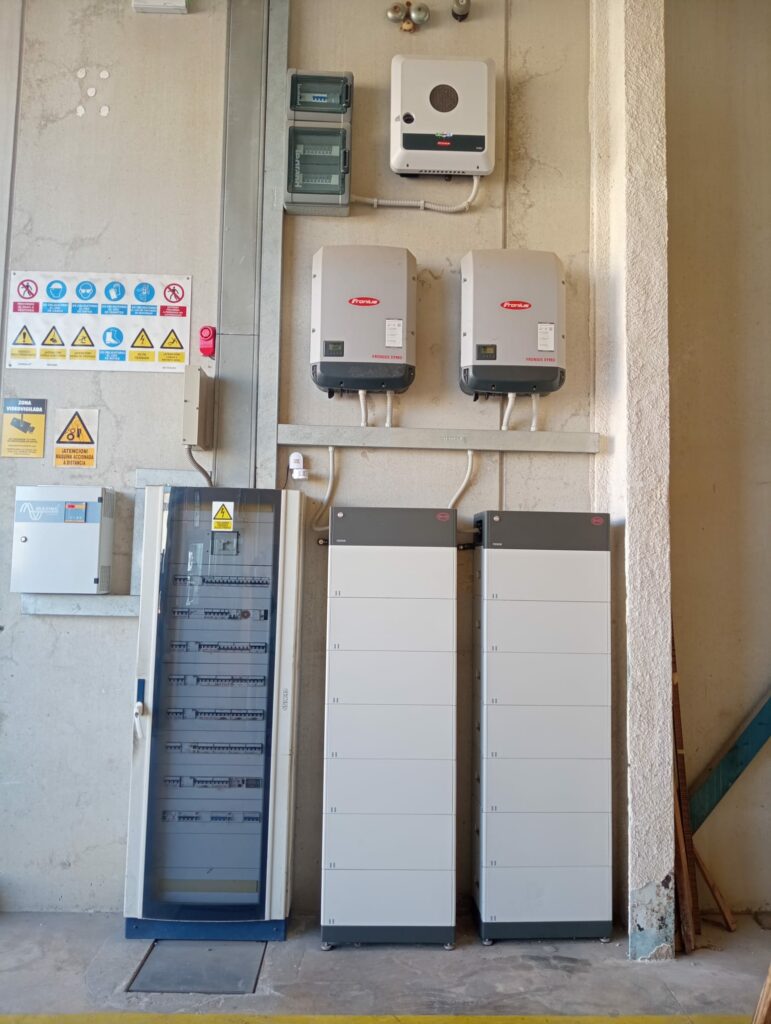
Using the electricity grid at that time, with the tariff we have contracted (with a maximum meter reading) means using the entire contracted power, even if it is only for a few minutes or an hour. In addition, from 8:00 in the morning onwards, one of the most expensive electricity price bands begins. Therefore, we find ourselves with an installation of solar panels on a solar roof that does not cover those hours. At the end of the day, the same thing happens, we have a higher energy demand than the solar production at that time.
An additional problem: The price of the surplus is getting lower and lower.
This problem is compounded by the increasingly low price of the surplus during the day. The misnamed "virtual battery" is simply a "virtual piggy bank" where the electricity trader values and rewards us for the energy that we feed into the grid (surplus) at the hourly price set by the wholesale electricity market (pool price).
As in any market, when we have a high supply (due to all the photovoltaic installations that are connected at the moment) generating and feeding their surpluses into the electricity grid, and less and less demand in those solar hours, the market price is lower and lower. As a result, we will be storing less and less money in this "virtual piggy bank" for the same solar production.
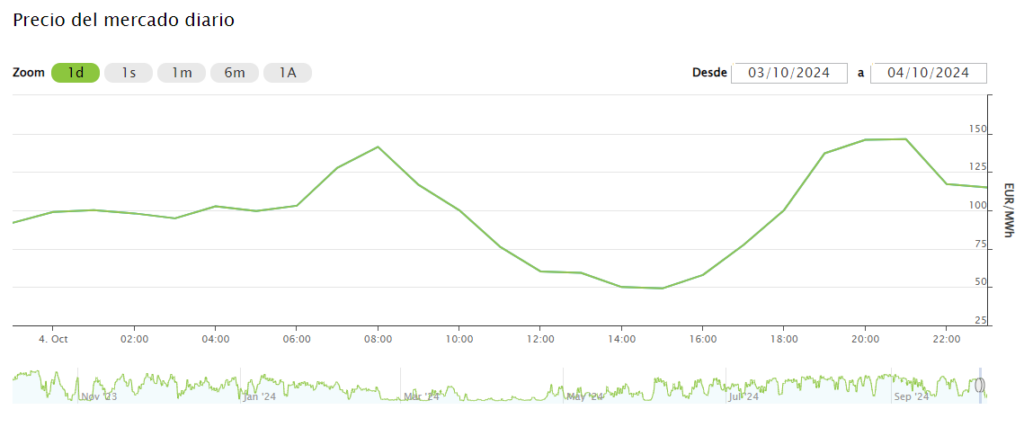
As can be seen in the graph above, the price of electricity in the hours of less or no solar production are the most expensive. The hours of solar production are the cheapest.
The solution: installing batteries, or in other words, hybridisation of solar photovoltaic installations.
The energy transition has been going through a sweet moment these years, many solar panels have been installed in companies and we have significantly reduced energy consumption in these companies and their competitiveness has increased thanks to this reduction in fixed costs.
As a starting point it is great, but we have to keep moving forward, the reduction in the price of lithium at current levels make this type of photovoltaic installations with batteries very profitable and its associated advantages are more than demonstrable and measurable in the short term. At ICIDE Energía, at the request of our clients, we prepare an economic report detailing the real amortisation of this type of hybrid photovoltaic installations. The power of the information provided by photovoltaic monitoring allows us to have hourly consumption data for our clients and to carry out a study under real conditions of the amortisation and savings that a hybridisation of their solar panel installation would generate.
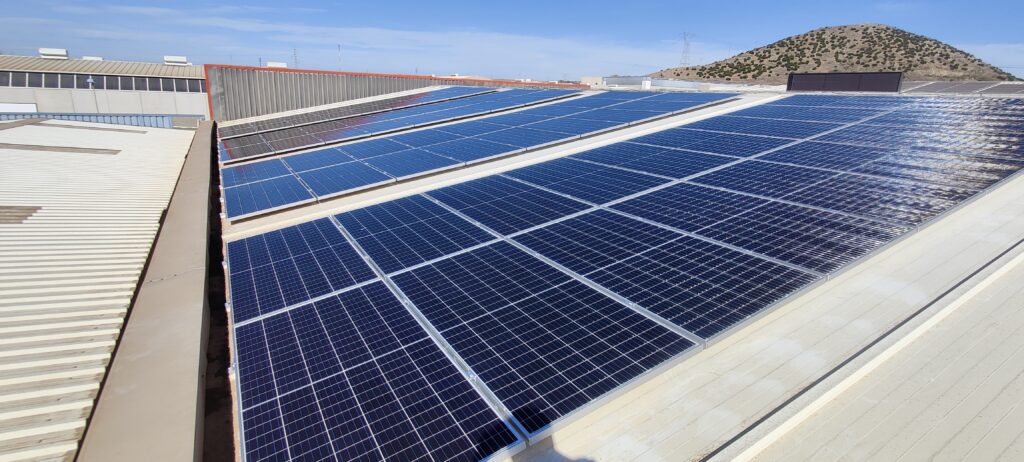
Can I install batteries in my solar installation?
The short answer to this question is always YES.
The long answer, and the one that is needed by those who ask this question, is to know at what price. The installation of solar panels of each client is particular and depends on the inverter installed, the type of contract or electricity tariff, whether it has a company transformer or subscriber transformer, the power required by each client at a certain time... Depending on all these factors, the installation of batteries in your self-consumption installation or hybridisation of your photovoltaic installation will make more or less economic sense. Although there may be cases where, for technical reasons, it is necessary to install batteries in solar farms or small solar plants; to store surpluses during the daytime in order to feed them into the grid at night when the price is higher.
How much does it cost to install batteries in my solar installation?
To install batteries in your photovoltaic or self-consumption installation, we first have to check whether your inverter is hybrid or does not support batteries. Subsequently, we have to determine how many batteries your installation needs and then draw up an estimate including the installation and legalisation of everything.
For your reference, we indicate the price of these two B&D batteries:
48V battery LV BYD Premium LVL 15.4 lithium battery -13272230-00 has a cost of 5.131,31€ incl. VAT. This results in a reference price of €333.20 per kw/h of storage.
High voltage battery HV BYD Battery-Box Premium HVM lithium battery 19.3kWh has a cost of 8.414,93€ VAT included. This results in a reference price of €436 per kw/h of storage.
If you found this article interesting and you think that you are still paying too much to your electricity company despite having installed solar panels, perhaps it is time to contact us so that we can explain the advantages of our solution in your case.

